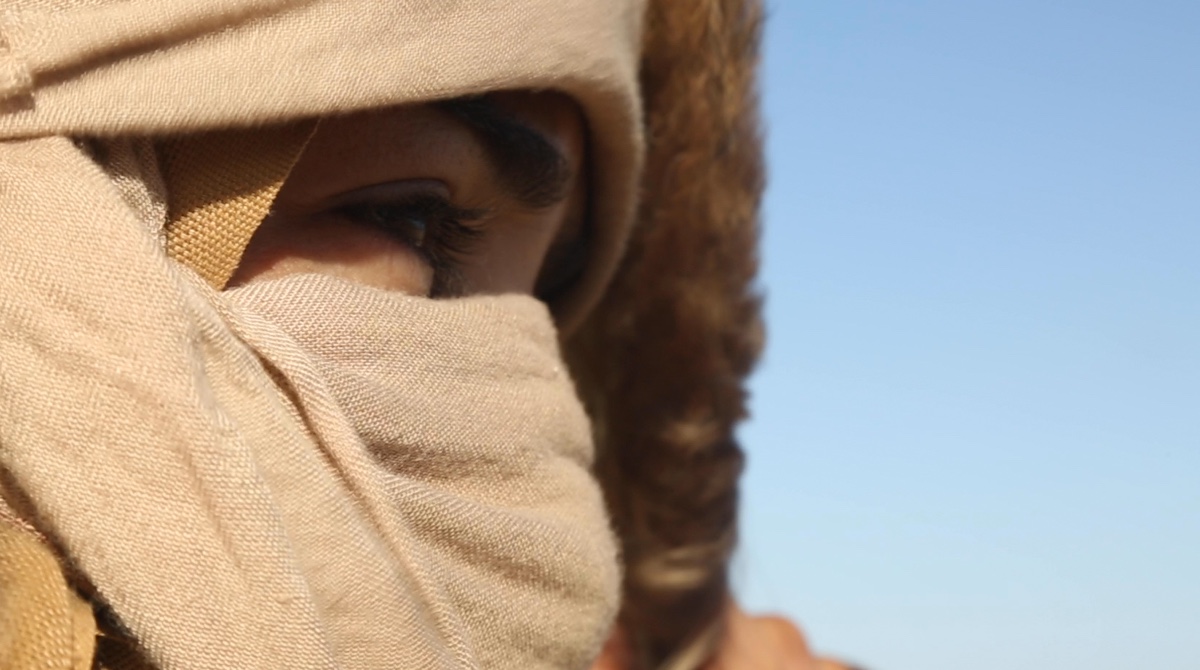
28/08/2021
'Accidental' story about saving lives in Western Sahara
Mutha searches for antipersonnel mines in the Western Sahara Desert. Every day, she faces death. Every exploded landmine reminds her that she has saved a life, but also that a mine marked her destiny. She is not alone between the fire and the sand. At her side, a presence paralyzes her, but also forces her to keep searching. Her story was accidentally caught by Spanish director Daniel Suberviola, whose documentary ‘Mutha and the Death of Ham-Ma-Fuku’ we are watching in the competition of this year’s Mediterranean Film Festival. I accidentally met Mutha. I got a call from a person who told me that after they had seen one of my documentaries they wanted me to direct the story in the free territories of the West Sahara. His name is Almeida and he is the producer and the master mind of the film. The initial idea was just to document the work of the deminers and in particular, Mutha's work, with the focus on the mines and explosive remnants of war.But after discovering the personal story of Mutha, we changed the approach, bombs and mines became the context and the emotional side of Mutha's personal story became the core if the film.
How did the filming go, were you afraid of some unforeseen situation?
The filming was good. Pure and simple. There is no single distraction in the base camp. It was difficult to get there, because you need escort, permits, etc, but once we got to the camp, we were very welcomed. However, I wish I had three more days for shooting.
How did the deminers react to you and the camera?
They were welcoming and polite, but that didn't open until the fourth or fifth day of shooting, especially Mutha, who was reluctant to tell her story, until she got confident. Where is she today?Mutha is living in Smara, one of the refugee camps in Western Sahara, about a thousand km from the deminers base camp, in Algerian soil. They call it Hamada (hell). And they have been living there since the war with Morocco pushed them away from their land.
In your previous films you also deal with the victims' stories?
Yes, I am drawn by the topics that portrait the stories of marginalized people and victims in general. I'm also very much interested in gender issues. So it’s true that I try to combine both elements. Mutha's character is a great example of this.
The film won many awards, are you satisfied?
Do you have a new story planned? To be honest, not to work, have fun, travelling and enjoying life. I dont want to hold a camera in the next year.


